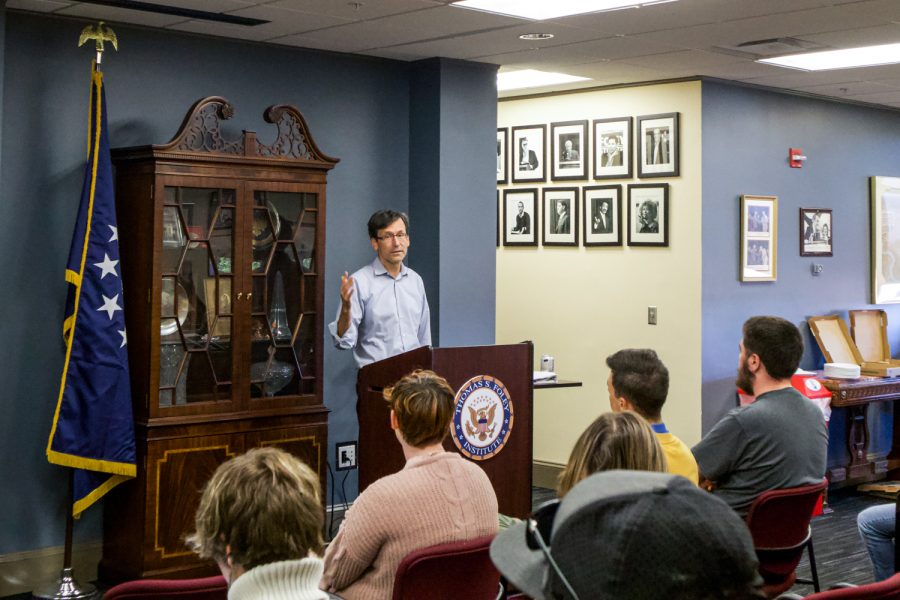Washington state attorney general talks transparency in opioid crisis, ads
Bob Ferguson voted to give Facebook maximum penalty for violating law
Washington state Attorney General Bob Ferguson discusses the process behind suing opioid distributors in relation to advertising, Oct. 18.
October 19, 2022
Washington Attorney General Bob Ferguson said transparency is crucial following Meta’s lawsuit against the greater Washington state and during the ongoing opioid epidemic on Tuesday afternoon during a Foley Talk at WSU.
The fact that corporations as large as Facebook do not bother to follow transparency laws is a direct threat to democracy, Ferguson said.
“Being an AG is full of tough decisions, but seeking the maximum penalty [against Facebook] was the easiest decision this month,” he said.
The lawsuit followed Facebook’s violation of Washington’s campaign finance transparency law, which was enacted over 50 years ago. The law requires commercial advertisers, like Meta and any other company that runs campaign advertisements in Washington state, to maintain records on campaign advertisements and make them available to the public.
“Citizen activists did not think there was enough transparency with our elections in Washington State. They put an initiative on the ballot to create that transparency,” Ferguson said.
Facebook violated it over 800 times by not disclosing financial details of advertising campaigns to the public. However, Facebook’s parent company Meta argued the law is unconstitutional, he said.
Ferguson said the reason Meta violated the law was because it refused to disclose information about who paid it to show its advertisements and how much they paid.
“Washingtonians wanted to see the [financial record] book on the ads for Facebook, something that was not being provided. Lawsuit said that Facebook needed to disclose this information like any other business,” he said.
The penalty for a violation of this law is anywhere from $1,000-10,000, but it can be tripled if the intent was to purposely break the law, Ferguson said.
“Washington State is seeking the maximum penalty, the hearing for which will be on Friday. They are repeated offenders of the law and are a sophisticated cooperation who has agencies that help the cooperation follow the law,” he said.
Overall, the team representing Washington in the trial is confident they will win the case and will be able to repeat the win if the case is appealed, he said.
Ferguson also discussed transparency during the opioid epidemic and suing distributors of opioids based on how they are marketed, Ferguson said.
“Many cases from state AG [are] against major pharmeducial agencies and distributors of opioids. Each case is a little different, but the key aspect is that from the view of AG’s is that corporations are putting profits above the law. They knew how addictive the opioids are. They minimized the addictive qualities when promoting their product,” he said.
Ferguson said the law being violated is the Consumer Protection Law, which encourages distributors to be completely transparent about addictive elements of opioids and how they affect consumers.
There was a $1.6 billion settlement that was reached, however, Ferguson does not believe that it was enough, he said.
“It is my view that the settlement was not large enough. I don’t think there is any amount of money that will bring back someone lost to addiction. It is an imperfect form of justice,” he said.
















